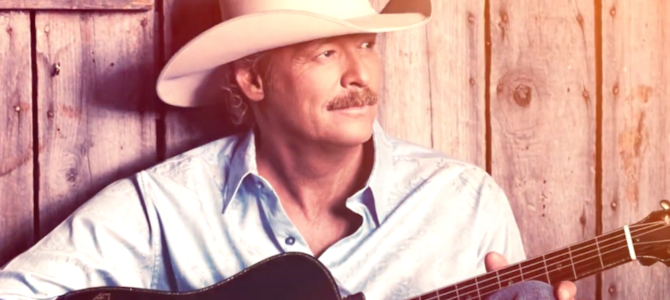
“Country music is gone — and it’s not coming back,” said country music icon Alan Jackson in an interview with “HITS Daily Double” Monday. Jackson, known for his classic ’90s country sound and hits like “Livin’ On Love,” “Little Bitty,” “Chattahoochee,” and “Remember When,” has a dim view on the future of traditional country music.
“Real country songs are life and love and heartache,” said Jackson, reminiscing on what country music is not these days. “They’re drinking, singing about Mama and having a good time, sad things, fun things. It reflects the sounds of the instruments I grew up on, steel and acoustic guitar, the fiddle, and the way they all came together. It gave you a sound, but also a real feeling or emotions no other music really had.”
Jackson is absolutely right. If you turn on the radio, country music’s message and sound have been replaced by bro and boyfriend country, pop and rap singers, and the notorious snap track.
Jackson and country fans can thank Nashville executives for pushing pop- and rap-sounding country. The less authentically country the songs sound, the better chance the execs have of making money by drawing in a larger base of pop and rap fans. Also, as Jackson points out, while modern corporate country may be bringing in the big bucks, they are slowly killing the distinct country sounds like the steel and acoustic guitar, fiddle, and banjo.
While Nashville and the big labels want fans to believe country music is becoming more “diverse,” with high-profile pop-country and rap-country collabs, it is actually causing all country music to sound homogeneous. And the unique regional sub-genres that make country music the distinctly American art form that it is are no longer getting played on the radio, and therefore losing the chance for the nationwide attention they deserve.
Of course, the message behind the new stuff is also not as wholesome and relatable as the rootsy classic country songs. Justin Bieber and Florida Georgia Line’s “Yummy” country remix can never compare or stand the test of time to Garth Brooks’ “Unanswered Prayers.”
Jackson describes his latest album, “Where Have You Gone,” as “harder country,” in order to actively subvert the prevailing pop-country sound. But honest as ever, Jackson says he, along with other aging classic country icons, need young artists to also stand up for the integrity of the genre. “I’m 62 years old; I’m not some 30-year-old stud,” says Jackson, “but somebody has to bring it back, because it’s not just people in their 50s, it’s people in their 20s, too.”
Just because corporate country is turning its back on what makes the genre so unique and beloved doesn’t mean young people no longer enjoy the classic tunes. As Jackson notes, “All the kids and young people around my house? The older they’ve got, the more hardcore and traditional what they’ve leaned into has become. It’s not old-school, it’s the real school. And I’m kinda pissed off … about what’s happened to the format, or whatever they wanna call it.”
That’s exactly why I’m a little more optimistic about the future of country music than Jackson. When young people are exposed to the original sounds, they love it. With Instagram, TikTok, YouTube, SoundCloud, Spotify, and iTunes available to budding artists, it is becoming increasingly less necessary for musicians to depend on country executives to greenlight their music.
Young artists no longer need the Nashville execs, they can make their own fan bases. Luckily for country music, there are many young rising stars who are fighting to preserve country music’s traditional sounds in unconventional ways.
One country singer determined to bring back the country music he grew up on is reality TV star Jon Brennan from MTV’s “The Real World.” Brennan is a talented singer who at one time was an opening act for Kenny Chesney, Toby Keith, and Tim McGraw, among others. Today, he is trying to bypass the big labels and go straight to the fans via technology.
“It is the democratization of country music,” Brennan told The Federalist. “You can put your music out there online, and people that are interested in your genre — your grassroots style of music — can go find you and they don’t have to necessarily look to radio and the major labels.”
“Technology has really worked in the benefit of artists because we can put our music out there on YouTube, rather than a major label,” he continued. “And so people are literally making records on their MacBook, rather than spending $200,000 in a recording studio. It’s kind of like a ‘Screw you’ to the huge record companies. We needed you and you weren’t interested, but now we don’t need you.”
Fortunately for country, there are tons of artists like Brennan who are excited about working outside of the Nashville corporate machine. Young artists who are sharing their talent with a front-facing camera and TikTok account are everywhere. And fans on social media have become the new big-time executives.
Jackson is right: true country has been ousted from the radio and real budding country singers aren’t getting big record deals. But all hope is not lost. Country is still alive and well in the digital world. And maybe one day fans will help country execs to once again appreciate the traditional sounds and American storytelling that made the genre great.









